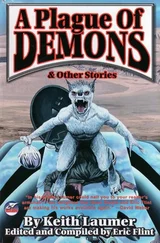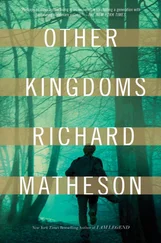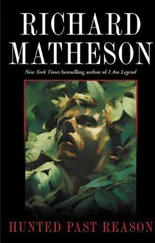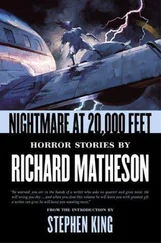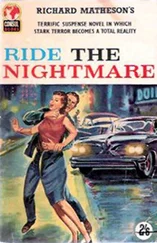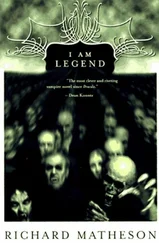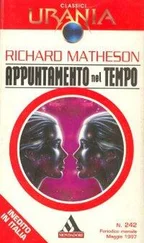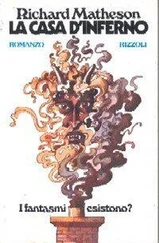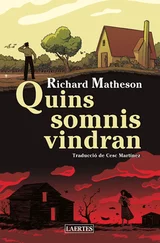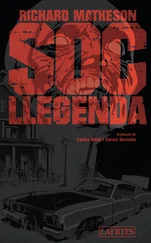“It must, one day,” he said. “It is a complex problem though. Not one of distance, as I’ve indicated, but of difference in vibration and belief. At present, only the most advanced psychics on earth can cope with it.”
“Why can’t everyone on earth handle it?” I asked.
“They could, with proper training,” Albert said. “The only ones we know of that can do it, though, are those born with the gift-or who acquire it by accident.”
“The gift?”
“An ability to utilize the etheric sense despite their encapsulation in the physical body.”
“Can’t I find a psychic with that ability?” I asked. “Communicate with him? With her?”
“What if that person wasn’t anywhere near your wife?” he said. “More likely, what if you did manage to communicate with such a person, he or she transmitted the message to your wife and she refused to believe it?”
I nodded, sighing. “And the one time I might have communicated,” I recalled, “it went so badly that it probably destroyed any possibility of Ann’s ever believing.”
“That was unfortunate,” Albert agreed.
“And he saw me,” I said, dismayed by the memory. “He actually read my lips.”
“He, also, thought your discarded double was you,” Albert reminded me.
“That was hideous,” I said.
He put an arm across my shoulders. “Try to have faith, Chris,” he told me. “Ann will be with you; it’s meant to be. And, in the meantime, perhaps a thought relay might help.”
I looked at him curiously.
“Sometimes a group of minds can join forces to contact someone left on earth,” he explained. “Not in words,” he added quickly, seeing my expression. “In feeling. Seeking to impart a sense of comfort and assurance.”
“Would you do this?” I asked.
“I’ll set it up as soon as possible,” he said. “Put your hand on Katie now and take my hand.
I did so and, immediately, found myself beside him at the edge of an enormous amphitheatre which was below ground level. It was crowded with people.
“Where are we?” I asked, straightening up from Katie.
“Behind the Hall of Music,” he said.
I looked around. It was a stunning spot in the twilight illumination, the descending amphitheatre surrounded by lawns and masses of beautiful flowers with tall trees in the background.
“Is there going to be a concert?” I asked.
“Here’s someone to explain it to you,” Albert said, smiling. He turned me around.
I knew him in an instant, Robert. There was very little difference in the way he looked. His appearance was one of vigorous health but he hadn’t grown younger, looking much as I remembered him. “Uncle!” I cried.
“Hello, Chris!” he greeted me. We embraced each other, then he looked at me. “So you’re with us now,” he said, smiling.
I nodded, smiling back. Uncle Sven was always my favorite, as you know.
“Katie, my girl,” he said, stooping to pet her. She was obviously pleased to see him.
He stood up, smiling at me again. “You’re surprised at how I look,” he said.
I didn’t know what to say.
“A natural curiosity,” he said. “One can remain at any age one chooses here. I prefer this one. Wouldn’t it be silly to have nothing but young people here?” I had to laugh at the quizzical look he gave Albert.
Albert laughed too, then told me he was going to try and arrange for the thought relay.
After he was gone, I explained about Ann and Uncle nodded. “Good, the relay will help,” he said. “I’ve seen it work.”
His confident manner made me feel much better. I even managed a smile. “So you’re working in music,” I said. “I’m not surprised.”
“Yes, music was always a great love,” he said. He gestured toward the grass. “Let’s sit,” he said. “You’ll like it better here than in the amphitheatre; I won’t tell you why, I’ll let you be surprised.”
We sat and Katie lay beside us. “Is there a lot of music here?” I asked.
“Oh, yes, it plays a large role in Summerland,” he answered. “Not only as diversion but as a way by which a person can achieve higher levels.”
“What is it you do?” I asked.
“I specialize in the study of the best methods of conveying musical inspiration to those who have a talent for composition on earth,” he said. “Our studies are tabulated and transferred to another group who consider the best means of communicating with these talented people. A third group does the actual transmission. Then-but I’ll tell you about it later, the concert is about to start.” How he knew I couldn’t tell since everything was out of sight beneath ground level.
He was right though; it was about to begin. I know you’re not a classical music lover, Robert, but it might intrigue you to read that the main composition to be performed was Beethoven’s Eleventh Symphony.
I saw quickly why Uncle had suggested that we sit above the level of the amphitheatre. Listening is not the whole experience.
No sooner had the orchestra begun to play-an unfamiliar overture by Berlioz-than a flat, circular surface of light rose from it to float level with the topmost seats.
As the music continued, this circular sheet of light became more dense, forming a foundation for what followed.
First, four columns of light shot up into the air at equal spaces. These long, tapering pinnacles of luminosity remained poised, then descended slowly to become broader until they resembled four circular towers each topped with a dome.
Now the basic surface of light had thickened and risen slowly to form a dome above the entire amphitheatre. This continued to rise until it was higher than the four columns. There, the immense musical form remained stationary.
Soon, the most delicate of colors began diffusing throughout the structure. As the music went on, this coloration altered constantly, one subtle shade blending into the next.
Because I couldn’t see the amphitheatre, orchestra or audience, it was as though some kind of magical architecture was taking place in front of me. I learned that all music emits shapes and color but not every composition creates such vivid formations.
The value of any musical thought form depends on the purity of its melodies and harmonics. In essence, the composer is a builder of sound, creating edifices of visible music.
“Does it vanish when the music ends?” I whispered, then realized that, since we spoke by thought, I didn’t have to whisper.
“Not immediately,” he answered. “Time must be allowed between pieces for the form to dissolve so as not to conflict with the next one.”
I was so enchanted by the shimmering architecture that I was scarcely conscious of the music which created it. I recalled that Scriabin had tried combining light and music and wondered if that inspiration had come from Summerland.
I, also, thought how Ann would love this sight.
The beauty of the color reminded me of a sunset she and I had watched together at Sequoia.
This was not the trip we made when Ian was a baby. This was sixteen years later, our first camping trip without the children.
We took a walk our first afternoon in the Dorst Creek campground; a two-mile hike to Muir Grove. The trail was narrow and I walked behind her, thinking more than once, how cute she was with her jeans and white sneakers, her red and white jacket tied around her waist, scuffing the dust as she moved, looking around with childlike curiosity, stumbling often because she didn’t watch the path. Nearing fifty, Robert, and she seemed younger to me than ever.
I remember sitting, crosslegged, in the grove with her, side by side, our eyes closed, palms upturned, closely ringed by five immense Sequoia trees, the only sound a faint but steady rushing of wind far above us. A thought occurred to me; the first line of a poem: Wind in the high trees is the voice of God .
Читать дальше

